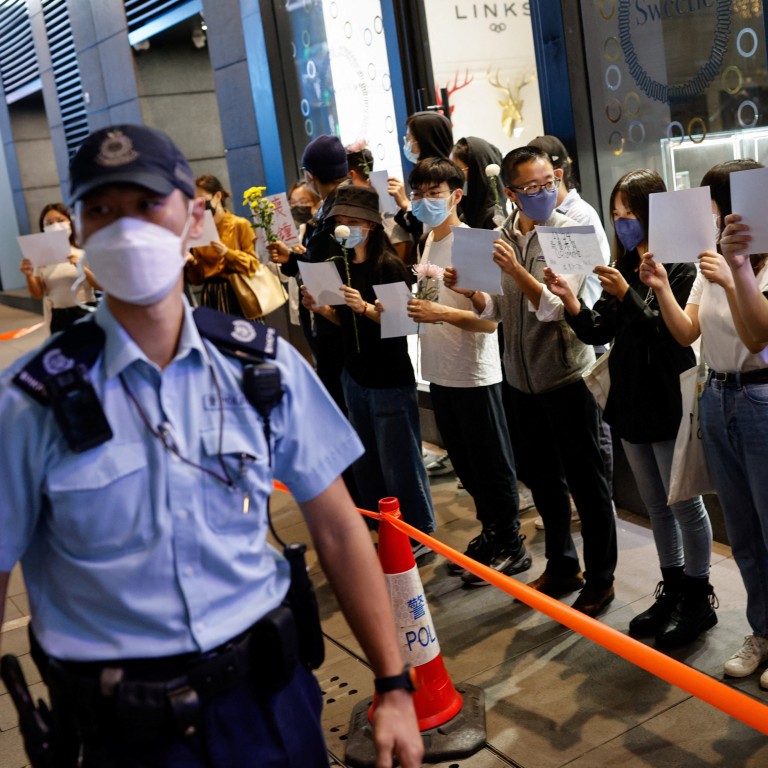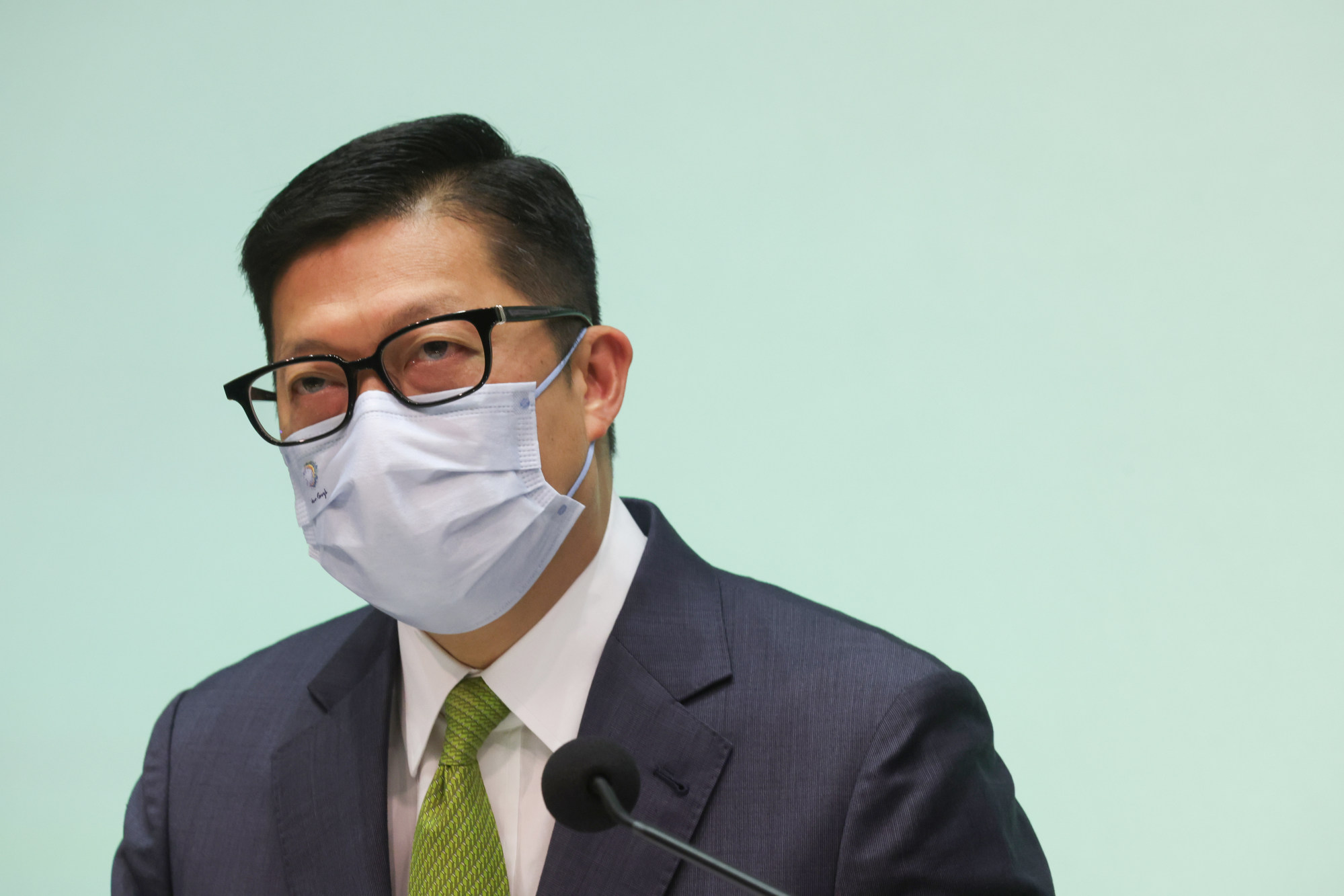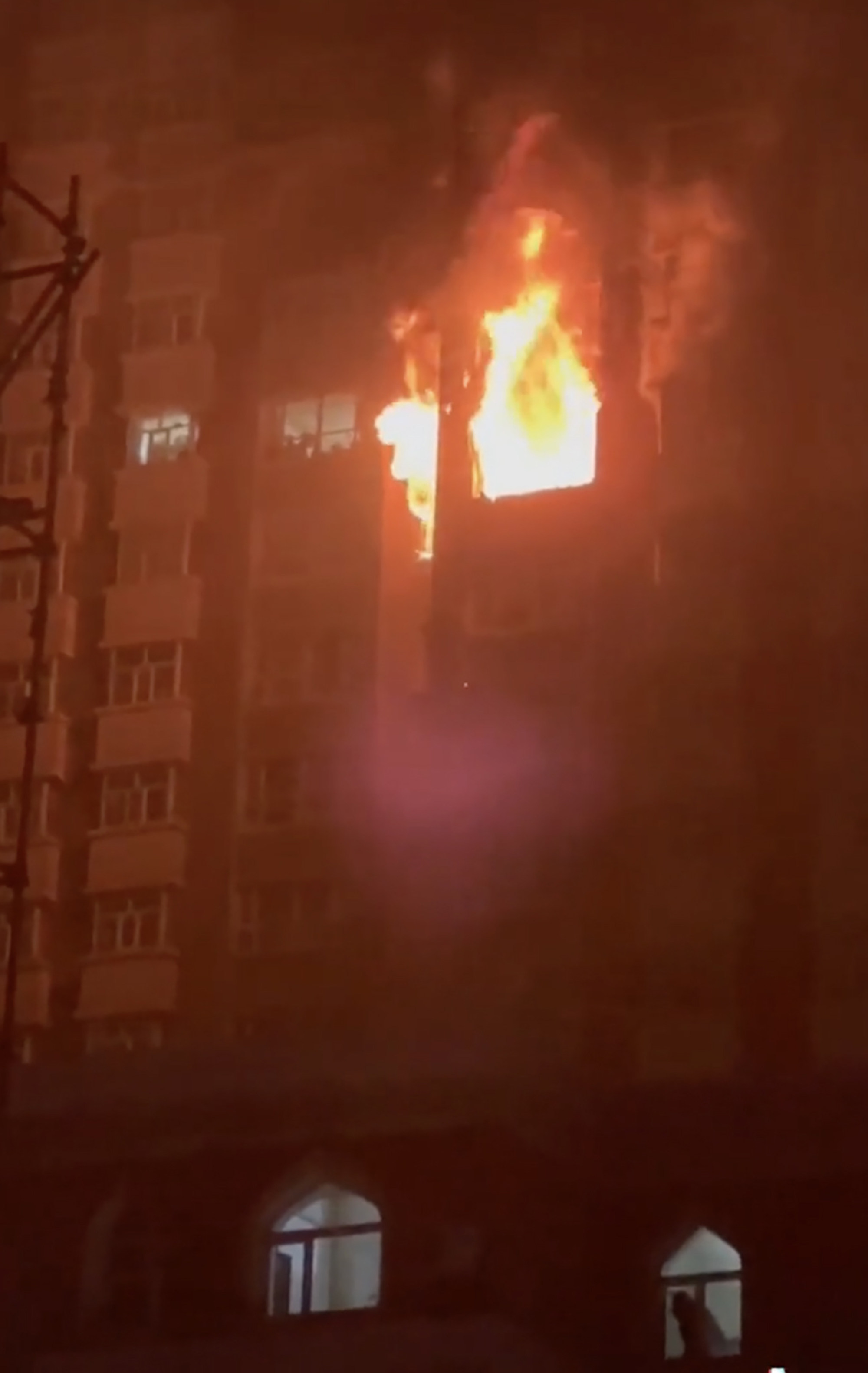
Hong Kong protests: security minister warns recent local demonstrations against Beijing over Xinjiang fire show early signs of ‘colour revolution’
- Chris Tang says small demonstrations on campuses and streets were ‘highly organised’ and conducted ‘under the pretence’ of mourning fire victims
- He urges varsity management to ensure their grounds do not become bases for ‘black violence’, pointing to 2019 social unrest
Hong Kong’s security minister on Wednesday said recent protests in the city against mainland China’s Covid-19 measures showed early signs of a “colour revolution”, warning such acts could be in breach of the national security law.
Chris Tang Ping-keung also said the small demonstrations that surfaced on the streets and in universities were “highly organised”, urging varsity management to prevent campuses from being turned into bases for “black violence”, a term used by officials to describe the 2019 anti-government protests.
Tang told the media after speaking in the Legislative Council on Wednesday that authorities had recently noticed the emergence of local activities against the central government, some of which were carried out “under the pretence” of mourning victims of a fire in Xinjiang.

Some participants had held blank sheets of paper during the protests, symbolising censorship.
“We have noticed that these protests are in a fledgling stage of a colour revolution,” Tang warned, adding that participants risked violating the Beijing-imposed national security law as he claimed their main purpose was to “subvert state power”.
“We noticed that a lot of these pieces of paper being held have phrases written such as ‘abuse of power’, ‘leader step down’, ‘dictatorship’ and ‘revolution’. These can all go against the security law and endanger our national security,” he said.
Police called after HKU students commemorate Xinjiang fire victims with posters
The fire in Urumqi that killed 10 people sparked protests in some major mainland universities and cities such as Shanghai over the weekend. Many believed Covid-19 restrictions had prevented the victims from fleeing, although officials rejected the allegations.

The first similar protest in Hong Kong came to light on Sunday, with the University of Hong Kong (HKU) calling police after two students put up posters on campus. About 10 mainland students from the Hong Kong University of Science and Technology (HKUST) were also said to have lit candles and displayed posters on campus on the same night.
Anti-Covid lockdown protests flare across China after deadly Urumqi fire
The protests soon spread to Chinese University, drawing a crowd of about 100 the next night. Dozens of protesters – including some from the mainland – also showed up in Central on Monday night, holding placards and placing flowers.
Tang warned that no one, regardless of where they were from – Hong Kong or the mainland – was immune from the law.
While the size of such protests remained small, public acts of defiance have been rare in Hong Kong over the past two years amid the pandemic and the imposition of the national security law.
Tang argued the protests were not coincidental, with such activities being “highly organised and planned” on social media platforms. Without naming the people involved, Tang warned the city could see a return to the “chaos” of the 2019 protest movement.
“I can’t wait until a petrol bomb is thrown or a university is burned down to do something, this is impossible,” he said. “We must do prevention work before something happens.”
In a reply to the Post, HKU said it was committed to maintaining a safe campus environment, while reminding its members to abide by the law and university regulations when conducting their activities.
Chinese University said it had a “zero tolerance approach” to any illegal behaviour on campus, adding that it would call law enforcement for help when needed.
HKUST likewise reminded its members to comply with the law. It warned that those who violated its regulations would be handled in accordance with the university’s established procedures.
Separately, activist Alexandra Wong Fung-yiu, known as Grandma Wong, was injured when she had her trademark yellow umbrella snatched by a man at Monday’s protest. Wong was later sent to hospital, while her assailant – a Baptist University student – was taken by police.
Responding to media reports, Baptist University said it was aware of a suspected assault case on Monday involving a student. It said it would not comment on the case as it was being handled by police, but added that it had disciplinary procedures applicable to students and would follow up with the case accordingly.

